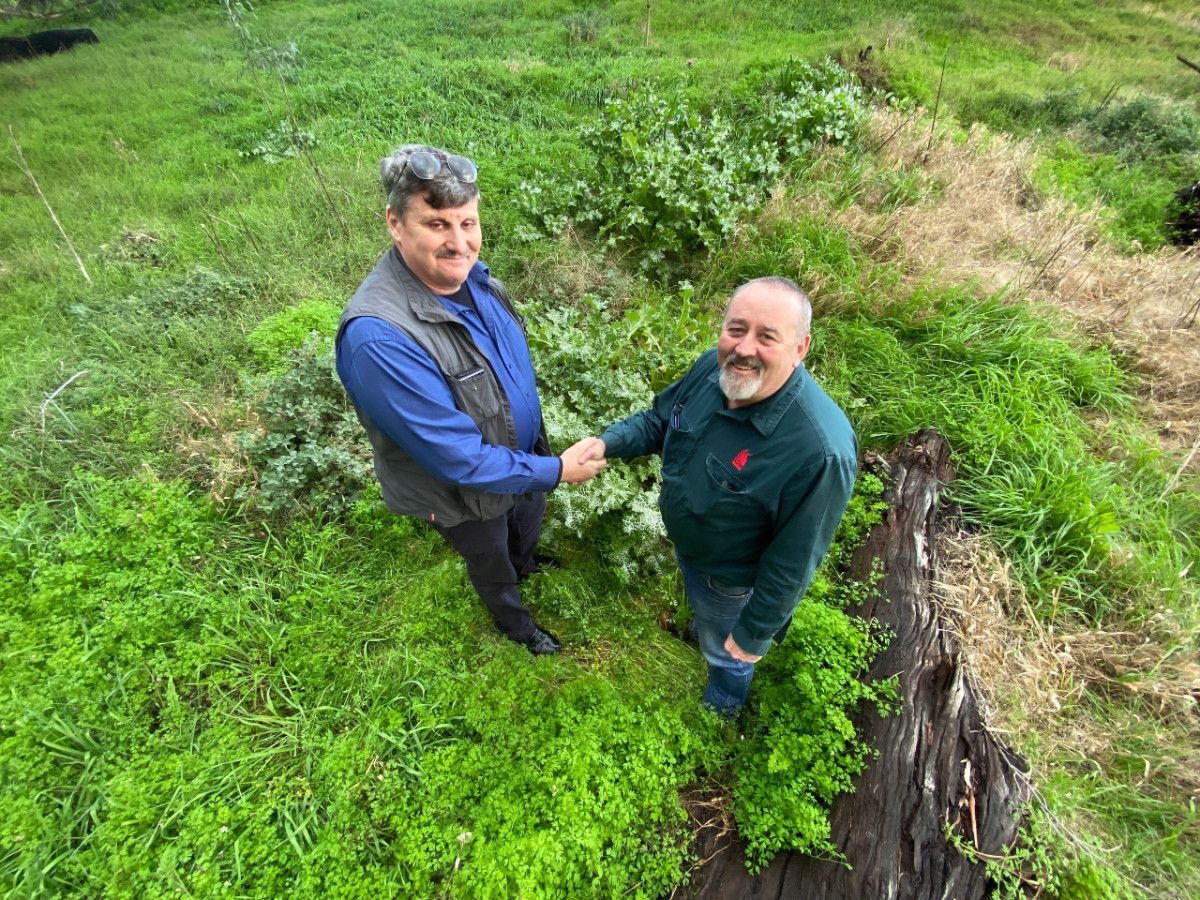
Managing weeds
Published: 23 Jun 2022 5:49pm
Wagga Wagga City Council is embarking on a weed management strategy focussing on our region’s riverside reserves after successfully applying for a $30,000 grant from Riverina Local Land Service.
Council’s Environment Team will be using the grant to help fund the management and control of weeds of concern, including lippia, caltrop, khaki weed and a variety of thistles.
The team will carry out a variety of management activities on Council-managed reserves harbouring these weeds, reducing the risk of the weed spread onto neighbouring agricultural land, and enabling better community access and enjoyment.

Riverina Local Land Service’s Weed Coordinator Mel Wilkerson said while the lower-profile weeds identified in this project do not receive the high profile attention of weeds that pose a significant environmental, economic or public health threat, they are the weeds that most often stop people from enjoying an area.
“For example, various types of thistles, which may or may not be on the list of local species of concern, are what the community sees, reacts to, and what stops them from appreciating the local amenity,” Mr Wilkerson said.
“If you’re trying to walk along a riverbank and you want to go and look at the ducks, or even just sit by the river; you have to walk through a bunch of stinging nettles or thistles. These weeds stop you from doing that – that’s the impact of these weeds.”

Mr Wilkerson said Riverina Local Land Service encourages integrated pest management and projects like Council’s as they can have much bigger flow-on effects than just treating weeds.
“This project targets many of the more common weeds of concern,” Mr Wilkerson said.
“While this will make the project areas more amenable, it also removes weeds that can harbour other pests. For example, rabbits and foxes often build dens and hide in the protection of these weeds and breed exponentially. By reducing these weeds, you are also removing animal pest harbour.
“There is a larger flow-on effect and, with the concept of integrated pest management and different types of control measures, the collective effect achieves a lot more across a broader spectrum than just killing a thistle or a blackberry bush.
“Wagga Wagga City Council have come up with some really good weed management strategies which is why we’re more than happy to fund this project submission.”
Environmental Management Team Leader Tony Phelps said that, in addition to other management techniques, the Environment Team would be using a selective herbicide to deal with the problem weeds.
“We’ll be complying with Council’s Pesticide Use Management Plan, using a herbicide that’s safe to use in public areas,” Mr Phelps said.
“We will also put up signage to let people know we’re spraying in the area and obviously won’t be spraying near people. If we need to go close to the water, we’ll use chemicals that are safe for use near the water channel.”
Mr Phelps said the weed management program will begin in a few weeks.
“We’ll start spraying in July, treating the weeds before they get a foothold and are able to seed, and that way you’ve still got good ground moisture allowing the native grasses to come back quite quickly,” Mr Phelps said.
“Once we’ve sprayed, we’ll come back and assess the success of the treatment and whether the existing plants and native grasses have been able to out-compete the weeds. If we need to put a bit of native grass seed back in, we’ll also do that to help recovery and restoration along.
“We’re pleased that Riverina Local Land Services have supported this program, which will supplement the other weed work Council does under the NSW Weed Action Program throughout the year.”
